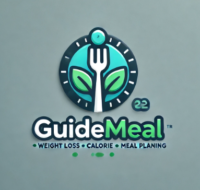To set realistic weight loss goals, start by understanding where you currently stand. Assess your weight, diet, and activity level. Next, define SMART goals: be specific (like losing 10 pounds), measurable, achievable (1-2 pounds a week), relevant, and time-bound. Create a sustainable plan with small changes, like eating more fruits and veggies, while keeping workouts enjoyable. Don't forget to track your progress! Use apps or a diary to see how you're doing. And when challenges arise, stay motivated! Finding a buddy can help and sharing your journey makes it even more fun. Want more helpful tips? ✨
Key Takeaways
- Assess your current weight, habits, and activity levels to establish a clear starting point for your goals.
- Set SMART goals that are specific, measurable, achievable, relevant, and time-bound for effective weight loss planning.
- Create a sustainable plan that incorporates small, manageable changes to your diet and exercise routine for lasting results.
- Track your progress regularly through weight checks and food diaries to identify patterns and stay motivated.
- Stay adaptable by recognizing plateaus and celebrating small victories to maintain motivation throughout your journey.
Understand Your Starting Point

Before diving into your weight loss journey, it's important to assess where you currently stand in relation to your goals. Have you ever thought about what your starting point really is? Knowing your weight, body measurements, and even your eating habits can help you understand where to begin. One effective strategy is to incorporate structured meal preparation, which creates a structured approach to diet and supports your weight loss goals.
Take a moment to write down these details. You might be surprised at what you discover! For example, you could find that you snack more than you realize. Isn't that eye-opening?
Next, consider your activity level. Do you exercise regularly, or is your lifestyle more sedentary? Understanding this helps you see what changes you might need to make.
Remember, it's not just about the numbers. Reflect on how you feel physically and emotionally. Are you energized or tired? Do you enjoy your meals, or do you often feel guilty about what you eat?
Define SMART Goals
When setting weight loss goals, it is important to make them SMART: Specific, Measurable, Achievable, Relevant, and Time-bound. This approach helps you focus and keep track of your progress. So, what does each component mean for you?
- Specific: Clearly define what you want to achieve. Instead of saying, "I want to lose weight," say, "I want to lose 10 pounds."
- Measurable: How will you measure success? You could track your weight weekly or log your meals.
- Achievable: Make sure your goal is realistic. Losing 10 pounds in a month might be too much if you've never tried dieting before.
- Relevant: Your goal should matter to you. Ask yourself, "Why do I want to lose weight?"
- Time-bound: Set a deadline. A goal without a timeline often gets pushed aside.
Here's a simple table to guide you:
| Goal Component | Example | Why It Matters |
|---|---|---|
| Specific | Lose 10 pounds | Gives you a clear target |
| Measurable | Track weight weekly | Helps you see progress |
| Achievable | Lose 1-2 pounds/week | Keeps you motivated |
Create a Sustainable Plan

Creating a sustainable weight loss plan is essential for long-term success. You want a plan that fits your life, right? Start by choosing small, achievable changes. Instead of cutting out all sweets, how about limiting them to the weekend? This way, you won't feel deprived. Additionally, utilizing structured meal planning can help you customize your nutrition to meet the energy demands of your workouts, which ultimately supports your weight loss journey strategic meal prep.
Next, focus on balanced meals. Think about adding more fruits and veggies to your plate. It's not just about losing weight; it's about feeling good too! Have you ever noticed how good you feel after a healthy meal?
Don't forget exercise! Find activities you enjoy, like dancing or biking. If you love what you do, it won't feel like a chore. Schedule your workouts just like you would an important meeting.
Also, plan for challenges. Life can get busy, and that's okay. If you have a tough week, don't give up. Just get back on track the next week. Remember, it's all about progress, not perfection!
Track Your Progress
Tracking your progress is an essential part of your weight loss journey. When you keep an eye on your achievements, you can see what's working and what needs adjusting. Have you ever felt lost in your goals? Monitoring your progress can help you find your way. Utilizing tools like a Wellness Planner & Fitness Log can enhance your commitment to healthier lifestyles and provide valuable insights into your journey.
Start by recording your weight regularly, but don't focus solely on the scale. Take note of how your clothes fit and any changes in your energy levels. You might also want to keep a food diary. This way, you can spot patterns in your eating habits. 📅
Consider using apps or journals to make tracking easier. They're often user-friendly and can show your progress visually. Remember, it's not just about the numbers; it's also about how you feel.
Set small milestones along the way. Celebrate them! Did you stick to your meal plan for a week? Treat yourself (not with food!) to something special.
Stay Motivated and Adapt

Staying motivated throughout your weight loss journey requires both dedication and flexibility. You might hit a plateau or face unexpected challenges, and that's completely normal! Instead of getting discouraged, think about how you can adapt. Have you tried changing your routine or mixing up your meals? Small changes can make a big difference.
One way to stay motivated is to set mini-goals. Celebrate each little victory, whether it's losing a pound or fitting into a favorite pair of jeans. These achievements keep you moving forward. And remember, it's okay to have bad days. What matters is that you don't give up.
Try finding a workout buddy or joining a group. Having someone to share the journey with can keep you accountable and make it more fun! You could even share your struggles and successes on social media.
Lastly, remind yourself why you started. Is it to feel healthier, look better, or boost your confidence? Keep that reason at the forefront of your mind. By staying flexible and motivated, you'll adapt and succeed in your weight loss goals! 💪✨

